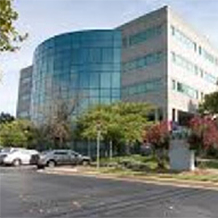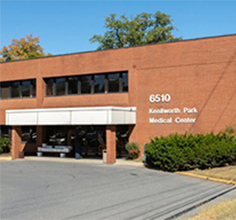.jpg)
Many cancers develop quietly, with no clear signs until they’ve already progressed. Your annual physical or routine screening helps to lay the foundation for long-term protection. Southern Maryland Medical Group is here to provide some guidance. If you have a provider who knows your baseline and sees you regularly, there’s a better chance of spotting any changes. Keep reading to find out how primary care doctors are a great asset for early detection.
Primary care doctors monitor health over time. They know your vitals, lab results, medications, lifestyle changes, and medical history. They also know when something’s not right because they know what your “normal” looks like. Rather than looking at symptoms in isolation, they have a well-rounded understanding of your overall health. If you do have risk factors that can potentially lead to cancer formation, like smoking, poor diet, or sun exposure, then they can help you manage them. They can also keep an eye on more subtle factors like chronic inflammation, long-term acid reflux, or obesity. Primary care physicians are trained to connect the dots, and they will have the detailed information needed to guide important decisions about early testing that can reduce your risks.
Most cancers are more treatable when they’re caught early. That’s why screenings are so helpful for cancer prevention. Your primary care provider in Largo can help determine which screenings are right for you based on your lifestyle, age, and family history. Some of the most common include:
These tests might not be needed every year, but they do need to happen on a consistent schedule. Your provider can help you stay on track and follow the latest evidence-based guidelines. They can also manage referrals to imaging centers or specialists if additional testing is needed.
If a test shows something abnormal, then your doctor will guide you through what it means and what to do next. Sometimes, you’ll need to order a follow-up scan, or you may be referred to a specialist. Other times, it might involve a biopsy or further lab work. In either case, your primary care doctor will stay involved. They can help explain your results in plain language, help schedule appointments, and coordinate your care across different providers. They can also keep tabs on your emotional well-being during what will probably be a very stressful time. Early detection saves lives, but it only works if there’s a system to support it.
Life gets busy, and it can be easy to skip your follow-up appointments when you’re feeling fine. However, these visits are an opportunity to confirm that past concerns haven’t developed into something more. If a scan showed a benign thyroid nodule or a colonoscopy revealed a polyp that was removed, it’s important to follow the recommendations for follow-ups in six months or a year. Small changes between scans can be the first sign that something’s evolving, and early detection is only possible if the testing is done on time. Primary care doctors track timelines for repeat scans, lab work, or referrals. They review previous results and compare them to current findings. Sometimes, a follow-up visit will just confirm that everything is stable, which offers peace of mind and is extremely valuable as well.
If you’re overdue for a visit or screening, Southern Maryland Medical Group is here to connect you with an experienced heart doctor or physician who can give you the care you need. Contact our team if you have questions or if you want to schedule an appointment.
Southern Maryland Medical Group has 3 convenient locations to provide professional medical care services in the Southern Maryland area. Call or schedule an appointment with one of our locations to get medical care help.

5801 Allentown Road, Suite 400 Camp Spring, MD 20746
Phone: 301-868- 0150
Billing Inquiries: 301-552-1270
Fax: 301-868-0243

7500 Greenway Center, Dr #1200 Greenbelt, MD 20770
Phone: 301-486-7580
Billing Inquiries: 301-552-1270
Fax: 301-486-7581

6510 Kenilworth Ave, Ste 1400, Riverdale MD 20737
Phone: 301-618-0771
Billing Inquiries: 301-552-1270
Fax: 301-618-0772